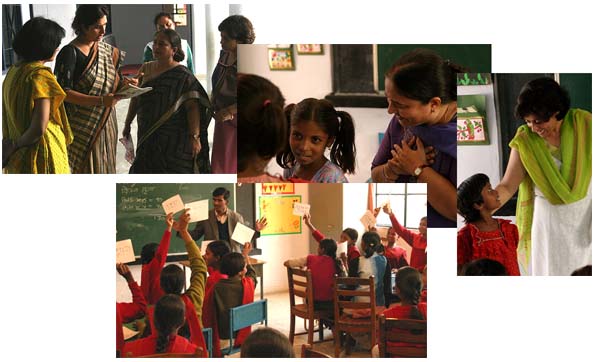A People's Database of Everything
At Digital Study Hall , we are working on creating a digital video database of "everything."
First, the DSH database is video-centric. This is important for places like rural India, which, by optimistic estimates, has an adult literacy rate of about only 60%. Second, at least at the beginning, the DSH database is being populated with systematic and coherent sequences of lessons based on curricula designed and sanctioned by state boards, so that they can be easily adopted by our target schools. The video recordings adhere to the curriculum topic by topic, lesson by lesson, and chapter by chapter, so it is well-structured. This is in contrast to unstructured and nearly random collections of snippets of knowledge that is difficult to find easy adoption and acceptance in existing schools. Third, the recordings in the DSH database are made by the best teachers at grassroots level. These include the best teachers in middle-class urban schools, rural schools, and other idealistic & enthusiastic volunteers such as university professors, scientists, college students, and NGO staff members. In short, the database is created by the people, and for the people.
This approach has important advantages compared to traditional forms of content creation, which is typified by flash-ware and slide-ware (Powerpoint slides). Good teachers are often the best "performers." It is their "showmanship," their way of relating to their audience, their "people skills," that are their most potent tool, a tool that is beyond the reach of flash-ware or slide-ware. Although adhering to the guidelines of state board syllabi, the lessons taught by the best teachers are highly interactive and activity-based. Video, though not perfect, comes closest to capturing the "performance" in the flesh. Another problem with the flash-ware and slide-ware approach is that it is slow and expensive, as one must employ a technical professional into the authoring process.
We envision building a database that contains all subjects, encompassing all grades, spoken in all local languages, covering all state and national boards. This is a database that every child (and adult, for that matter) should have access to. We believe such a database will have profound implications for liberating knowledge, democratizing learning, and revolutionizing education.